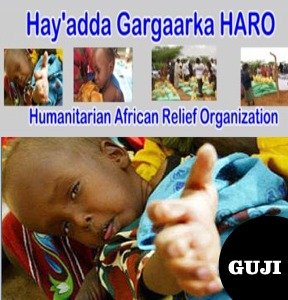- On July 27 Rep. Peter King held his third Congressional hearing on the “radicalization” of Muslim Americans, putting the spotlight on Somali American youth. Only one Somali speaker gave testimony, Ahmed Hussen from Canada. Below Abdinasir Egal, a researcher with African Rights Monitor and organizer of the Somali Diaspora Youth Conference in Boston in mid July, voices his concerns.
by Abdinasir Egal
On July 27, 2011, Rep Peter King of New York chaired yet another round of hearings on the recruitment and radicalization of Muslim American Community, in particular the recruitment and radicalization of Somali-American youth. Though there is legitimate concern about the Somali youth returning to their former homeland and joining Al-Shabaab, the main Islamist group that controls Southern Somalia, the motivation behind these hearings lacks sincerity and is based on political expediency.
Apart from being a stage for Rep King to play out his political agenda, the hearings only encourage all enforcement agencies to target and marginalize the Somali Youth without truly addressing the many issues and problems facing the Somali-American community or understanding the motivation behind the return of some Somali-American youth to Somalia.
The City of Boston recently hosted the 3rd Annual Somali Diaspora Youth Conference where young men and women expressed the frustration in regards to the treatment of law enforcement agencies towards the Somali American community. They spoke of how community members are profiled at airports and how law enforcement agencies target the community without any cause for suspicion. Conference panelists and participants shared their experiences. Many spoke of how the U.S Immigration and Customs Enforcement agents deal with Somalis returning from abroad. According to the attendees, Somali-Americans are subjected to long interrogation sessions sometimes lasting for hours where the person is treated more like criminal suspect than a mere citizen returning to his or her country.
Immigration agents collect detailed information on every Somali-American that returns from a trip abroad. Some of the information collected by the agents includes people’s tribal background- something that has no relevance to any security issue. Asking Somali-Americans of their clan affiliation only reinforces the divisions within the Somali-Americans, a recovering factionalized community. The FBI is even reported to have been meeting with the Somali-American community along clan lines.
The issue of radicalization was addressed at the conference. The youth and professional adults in attendance expressed their willingness to listen and hear the Government’s concerns but they also stated that the Government must be willingly to listen and hear what the community has to say. The youth noted radicalization is not the most pressing issue facing the Somali-American youth. Access to quality education, healthcare, and housing were their core concerns. They also discussed youth delinquency, gangs and inter-generational communication gaps.
Apparently, there is lack of appreciation for the political realities of Somalia in the last 5 years. The ill-fated Ethiopian invasion of Somalia in 2006 created an environment conducive to nationalist movement. Some Somalis returned to Somalia to defend their homeland from the invading Ethiopian- Somalia’s historical enemy. Many joined the war not because they have an affinity with Al-Shabaab but their nationalistic fervor compelled them to return and defend their native land.
If Rep King’s previous hearings are any indication, aside from its theatrical value, the hearing, I am afraid, only paints a wide brush on the Somali-American community and further stigmatizes it. Furthermore, I am afraid it emboldens law enforcement agencies to treat the Somali-American community as second class citizens by compromising their civil rights and civil liberties with impunity. And lastly, I am afraid it negatively impacts the Somali-American community’s confidence in law enforcement and law-makers and as such has an adverse effect on the community’s willingness to cooperate with law enforcement- something that is very essential to crime prevention.
Contact : samireeves at hotmail DOT .com
Link
http://privacysos.org/blog/guest/abdinasir_1






































comment closed after 30 days / Jawaabaha waa la xiray ama waa la joojiyay wixii ka badan 30 cisho.